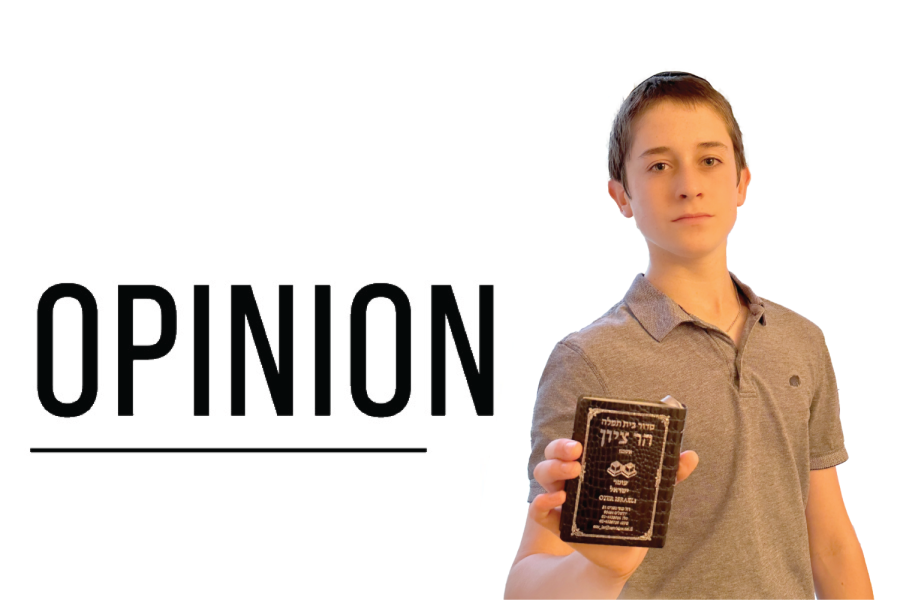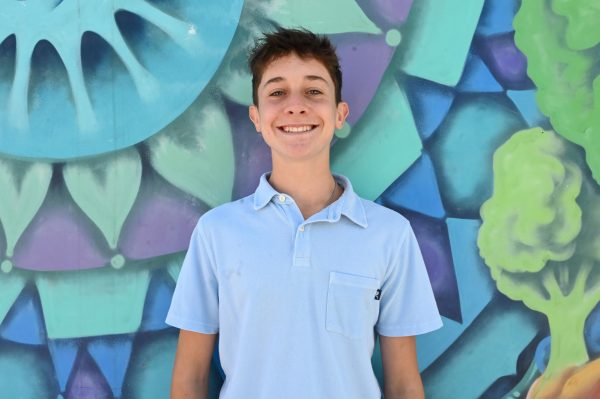Let our rabbis spread the light
June 9, 2023
A not unfamiliar sight during tefillah, prayer, at Shalhevet is the student gazing off into the distance, sometimes mouthing the words, other times appearing to be in a different place. We could be deep in prayer, or we could be thinking about something else entirely.
During everyday school davening, both at Shacharit and at Mincha, many students are unengaged in prayer and instead are talking to their neighbors. During my silent Shmoneh Esrei, the center of the service, I can rarely daven without interruption or a slight whisper in my ear.
That is the main problem with our school tefillah.
The rabbis at Shalhevet take a variety of approaches to this problem. Some feel they should not force prayer on people who don’t feel compelled to participate, and therefore are content to have such students sit in quiet. Others place siddurs in students’ hands and point them to the correct page. But there is debate about which is right.
Which brings me to the key question: Do our rabbis have the right to encourage students to pray when they see us not participating?
Yes, they do.
Until this year, I balanced going to a Conservative day school and a Modern Orthodox synagogue. Coming to Shalhevet, I was looking forward to a strong Jewish education and daily davening filled with kavanah, intention.
All members of the Shalhevet community need to understand what they are getting into when joining it. One of the key components of Judaism is prayer. By not at least trying to participate in tefillah, we harm the experience for those who cherish this brief window of time to talk directly to God. Part of this experience is communal, in that we lean on each other to help lift us to this spiritual place.
Students who lack kavanah during davening take away from the experience of those around them. The most beautiful parts of tefillah are the call-and-response prayers and the hymns when we sing and celebrate God. When we collectively speak to God, we tap into a source of strength and create a bond.
When a rabbi sees a student zoning out in tefillah, it is his role to ask them to at least make an effort to participate – for the sake of that student’s learning, and for the benefit of the minyan’s connection with God.
Prayer builds on shared values and helps us aim for higher levels of being in our everyday life. Without each one of us, the experience of tefillah diminishes not only for students but for the rabbis, our teachers, who dedicate themselves to our spiritual and intellectual growth.
The rabbis at Shalhevet have a job, and that is to spread the light of Judaism to the Shalhevet community. Praying is a significant part of that light. In a world that is constantly evolving and modernizing, when change is encouraged, it’s even more important to take steps to preserve our tradition.
It is not uncommon for there to be some variability in religiosity in school. But we all show up to school every day knowing that the school’s values are shaped by Torah and Torah-based learning. That is why we study halakha, Jewish history, and texts; grow as proud Zionists; and develop a spiritual path of meaning through attending and participating in daily tefillah.
Considering what kind of school Shalhevet is, not allowing a rabbi to encourage students to pray seems inconsistent with the mission and values of who we are – the same mission that shapes the unique and special learning environment that we love.
Let’s let rabbis be rabbis so we can benefit fully from their leadership – not only during class time and kumsitzim, but at the very moments when we try to connect with God.














